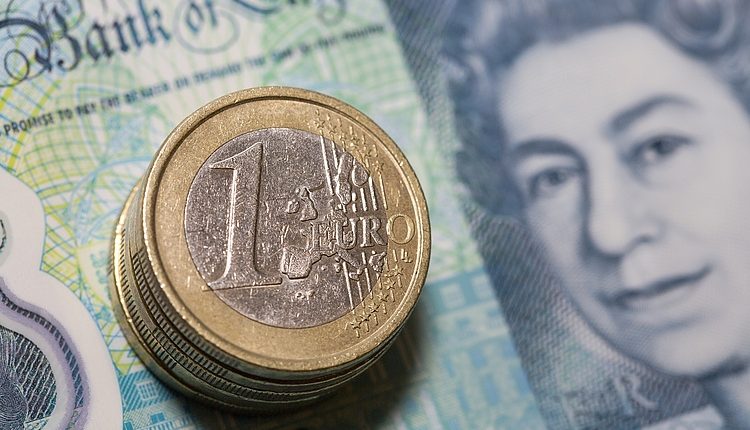- EUR/GBP drifts higher to around 0.8320 in Monday’s early European session.
- The weaker-than-expected Eurozone PMI triggers ECB rate-cut bets.
- The downbeat UK Retail Sales and flash PMI weigh on the GBP, but the cautious stance from the BoE might cap its downside.
The EUR/GBP cross strengthens to near 0.8320 during the early European trading hours on Monday. The upside of the shared currency might be limited amid rising speculation the European Central Bank (ECB) will implement aggressive interest rate cuts to prop up the faltering regional economy.
Traders raise their bets that the ECB could deliver a bigger half-point rate cut after the downbeat Eurozone Purchasing Managers Index (PMI) data on Friday. This, in turn, might exert some selling pressure on the Euro (EUR) against the Pound Sterling (GBP).
“This report truly puts a 50-basis-point cut on the table for December,” noted Matthew Landon, JP Morgan Private Bank’s global market strategist. Additionally, the ECB Governing Council member Martins Kazaks said that the central bank should lower interest rates next month due to the weak economy.
The weaker UK Retail Sales and PMI data could boost the Bank of England’s (BoE) dovish bets for December and weigh on the GBP. Data released by the Office for National Statistics (ONS) on Friday showed that UK Retail Sales dropped 0.7% MoM in October versus a 0.1% increase (revised from 0.3%) in September. This figure came in below the market consensus of -0.3%.
However, the cautious stance from the BoE officials might help limit its losses. Traders will monitor the speeches from MPC members Clare Lombardelli, Swati Dhingra, and Huw Pill on Monday for fresh impetus.
Euro FAQs
The Euro is the currency for the 19 European Union countries that belong to the Eurozone. It is the second most heavily traded currency in the world behind the US Dollar. In 2022, it accounted for 31% of all foreign exchange transactions, with an average daily turnover of over $2.2 trillion a day. EUR/USD is the most heavily traded currency pair in the world, accounting for an estimated 30% off all transactions, followed by EUR/JPY (4%), EUR/GBP (3%) and EUR/AUD (2%).
The European Central Bank (ECB) in Frankfurt, Germany, is the reserve bank for the Eurozone. The ECB sets interest rates and manages monetary policy. The ECB’s primary mandate is to maintain price stability, which means either controlling inflation or stimulating growth. Its primary tool is the raising or lowering of interest rates. Relatively high interest rates – or the expectation of higher rates – will usually benefit the Euro and vice versa. The ECB Governing Council makes monetary policy decisions at meetings held eight times a year. Decisions are made by heads of the Eurozone national banks and six permanent members, including the President of the ECB, Christine Lagarde.
Eurozone inflation data, measured by the Harmonized Index of Consumer Prices (HICP), is an important econometric for the Euro. If inflation rises more than expected, especially if above the ECB’s 2% target, it obliges the ECB to raise interest rates to bring it back under control. Relatively high interest rates compared to its counterparts will usually benefit the Euro, as it makes the region more attractive as a place for global investors to park their money.
Data releases gauge the health of the economy and can impact on the Euro. Indicators such as GDP, Manufacturing and Services PMIs, employment, and consumer sentiment surveys can all influence the direction of the single currency. A strong economy is good for the Euro. Not only does it attract more foreign investment but it may encourage the ECB to put up interest rates, which will directly strengthen the Euro. Otherwise, if economic data is weak, the Euro is likely to fall. Economic data for the four largest economies in the euro area (Germany, France, Italy and Spain) are especially significant, as they account for 75% of the Eurozone’s economy.
Another significant data release for the Euro is the Trade Balance. This indicator measures the difference between what a country earns from its exports and what it spends on imports over a given period. If a country produces highly sought after exports then its currency will gain in value purely from the extra demand created from foreign buyers seeking to purchase these goods. Therefore, a positive net Trade Balance strengthens a currency and vice versa for a negative balance.
Read the full article here

